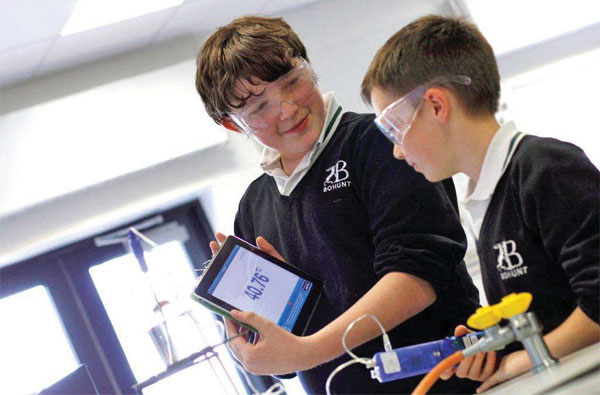
Scoring success
The Bohunt experiment came after Shanghai students had consistently ranked best in math in the Program for International Student Assessment, which is issued by the Organization for Economic Cooperation and Development. By comparison, British students at the time ranked 26th.
The PISA ranking triggered global interest in Chinese methods and supplementary materials. Britain increased exchanges with Chinese teachers and schools to find out how to improve the quality of its schools.
Over the past 18 months, 127 math teachers from Shanghai have shared their experiences and skills in English primary schools. British educators say their techniques, such as spending more time on subjects and teacher-led explanation, have already had a positive effect.
"Most people are surprised at the way Shanghai performed on PISA because they thought, with rote teaching, it seemed likely that the students were to fare worse than others on tasks that require an application of knowledge and a problem-solving ability," says David Johnson, reader in comparative and international education at the University of Oxford.
That is a misunderstanding, he says. "It's not possible to solve problems and do inquiry learning without the necessary subject bases. Often things like inquiry-based learning are not always, across different countries, in the domain of the school, so many systems don't feel the need to make that a strong part of the curriculum."
China, which concentrates on establishing the basics, understands much better that young people are exposed to a number of opportunities both inside and outside school to think mathematically or to solve real-life problems in other ways, he adds.
"So how one balances out the twin demands of a good, strong knowledge base and sufficient opportunities to apply these to real-life problems is the important mixture."


















































